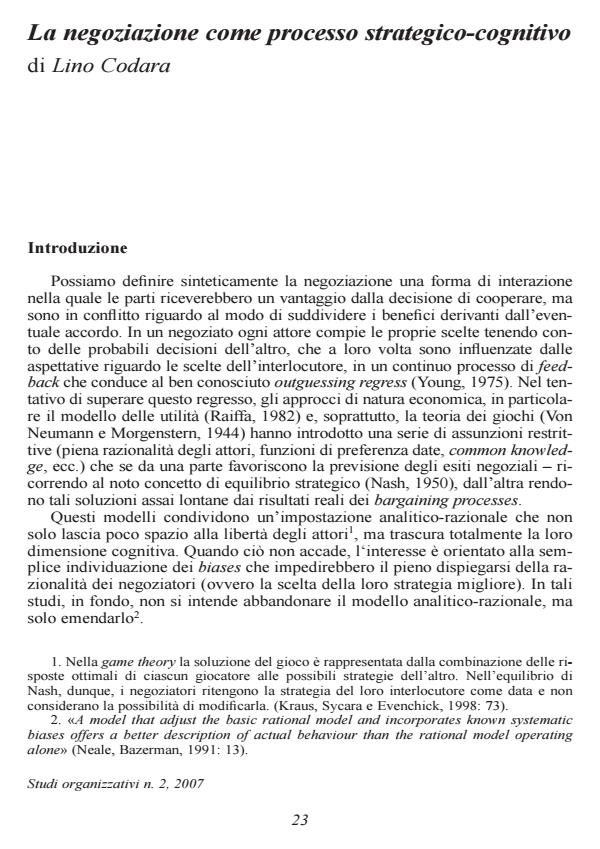La negoziazione come processo strategico-cognitivo
Journal title STUDI ORGANIZZATIVI
Author/s Lino Codara
Publishing Year 2007 Issue 2007/2
Language Italian Pages 29 P. 23-51 File size 101 KB
DOI
DOI is like a bar code for intellectual property: to have more infomation
click here
Below, you can see the article first page
If you want to buy this article in PDF format, you can do it, following the instructions to buy download credits

FrancoAngeli is member of Publishers International Linking Association, Inc (PILA), a not-for-profit association which run the CrossRef service enabling links to and from online scholarly content.
The models most used by scholars and which find the widest echo in the manuals and in managerial formation utility model, game theory share an analytical rational paradigm that not only leaves little space for the bargainers’ freedom, but also neglects their cognitive dimension. In the studies where this does not occur, the interest is centred simply on the discovery of the biases which could impede the full unfolding of the bargainers’ rationality. The article reconsiders the most important contributions in the bargaining literature in order to sketch out a richer and more articulate model of a strategic-cognitive nature. According to such a model, the most important bargaining decisions that the bargainers assume, are taken on the representations of the situation which they derive directly from their belief systems; during the bargaining the parties do not only reply to the moves and the strategies of their interlocutors so discovering the true structure of the game in a simply adaptive perspective but they also act strategically in order to construct their field of action, redefining both their own stakes and bargaining power. This view restores freedom and responsibility to the bargainers and involves their ability to construct effective representations, to activate analogies and metaphors capable to give a structuring (or to provoke a re-structuring) of the game which promote positive outcomes. The working hypotheses presented design a model with a more modest predictive capacity but with a greater capability to account for the bargaining strategies of complex parties, such to offer concrete guidelines for action and to formulate suggestions to the real bargainers, in a typically reflective theoretical perspective.
Lino Codara, La negoziazione come processo strategico-cognitivo in "STUDI ORGANIZZATIVI " 2/2007, pp 23-51, DOI: